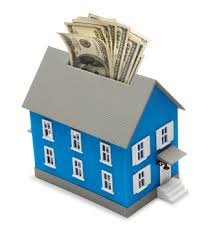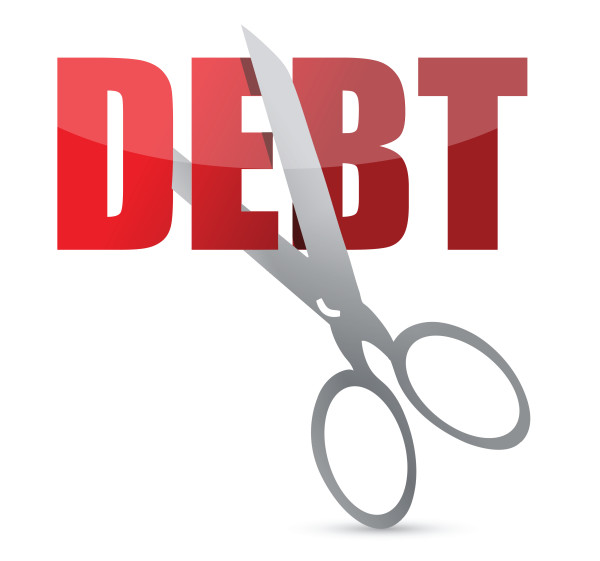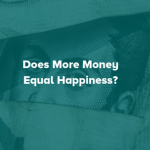Jake and Sarah, a professional working couple in their early 30 years, decide to purchase their first home. They take out a mortgage with a 25 year amortization, thinking that if all goes well, they’ll be mortgage-free by the time they’re in their mid-50s. Theoretically speaking, they should then have enough disposable income in their retirement years to really “enjoy” this latter part of their lives.
Now here’s what really happens.
Over the years Jake and Sarah have acquired a “comfortable” lifestyle, drive new cars (financed or leased), eat out quite often, still have student loans and have amassed a sizable amount of debt. The debts are beginning to weigh in on them so they begin to look for a quick way to pay off their debts. So, what do they do? They look around to see where they can get a big chunk of money… and it hits them. Of course, the answer is right in front of them or better yet, providing a protective roof over their heads. So they decide to go for it. What is this “it”? Ah, the “R” word.
Refinance. Jake and Sarah did it, Mary and John have done it, Sam’s about to do it and maybe even you have thought about it if you own a home and have been strapped for cash at one time or another. No matter what the reasons are, the reality is that by refinancing your home you are extending the duration and balance of your mortgage loan, and the more refinancing you do, the longer it’ll take to pay off that mortgage. While there seem to be some short term gains of refinancing (which is why it’s so popular), I’d like to challenge you to think about the potential dangers that it carries.
#1. High Interest Fees
Let’s say you have a $400,000 mortgage with a 30 year amortization at a 4.5% interest rate (Mortgage rates are much lower right now but that won’t always be the case). This means you would have paid over $329,000 in interest fees over the life of the mortgage. Obviously, that’s a big chunk of cash. Now remember, you decided to refinance your home. Let’s say you borrowed an extra $150,000 with the same interest rate over an additional 30 year period, this would now leave you with an additional $123,000 in total interest paid. That’s almost $452,000 of interest with what initially began as a $400,000 mortgage loan. That’s even more than the original mortgage was, and that’s just in interest! Maybe it’s just me, but the economics just don’t make sense.
#2. Bad Financial Habits
Many people have come to the false conclusion that the “only” way to be financially independent is to be wealthy. The truth is that becoming debt-free will give you financial independence in a way that you have never imagined. Think about it like this: if your mortgage payment was $1700 a month but now you’re mortgage-free, that same $1700 can be diverted to another project – support your children through school, put some money away for your grandchildren, purchase an investment property, support an organization or charity, start a business, or simply take a vacation on a regular basis – the list is endless.
We live in an “I want it now” world where instant gratification rules the hearts and minds of many people, thereby making it almost impossible to become debt-free. From working with hundreds of families over the past decade, I’ve come to know that the majority of “things” that people get into debt for are not necessities but rather wants or desires. Treating your home like an ATM could be the very thing that’s keeping you from being financially independent.
In line with the bad financial habits that refinancing your home creates is the “Cycle” that you can get into. You borrow money from your home because you “really need it just this once”, only to find yourself “needing” money more and more. I’ve seen it happen many many times. These debts are a symptom of bigger underlying issues and refinancing does not treat those issues at their core, it only treats the symptoms and reinforces the bad habits. Many have lost their homes and have even declared bankruptcy as a result of these bad habits.
#3. Unnecessary Burden in Your Retirement Years
The other unfortunate side to extending mortgage debt is that you now have to prolong your age of retirement or you’ll have to pick up a part time job to supplement your pension. Be honest with yourself, do you really want to be thinking about mortgage payments when you’re 70 years old? Of course not! Being mortgage-free will give you peace of mind, and peace of mind in your old age is indeed priceless.
I’ve always preached stewardship, accountability and commitment. When all three of these principles are applied, you will not fall victim to the problems that plague others in their old age; instead, whether you’re wealthy or not, you can enjoy financial independence on YOUR terms.
Now, all that being said, is it always a bad idea to refinance? Of course not. It depends on your reason(s) for it and your own personal financial situation; but the pros must outweigh the cons. Furthermore you need to ensure that the reasons you got into debt in the first place are resolved. You need to implement a budget and cultivate good spending and saving habits. If you’re thinking about refinancing, making an appointment with a Financial Advisor should be your first step (before even meeting with your bank or mortgage agent). You can contact our office and let us help you to fully weigh all your options so that you can avoid the potential dangers that I’ve talked about.









